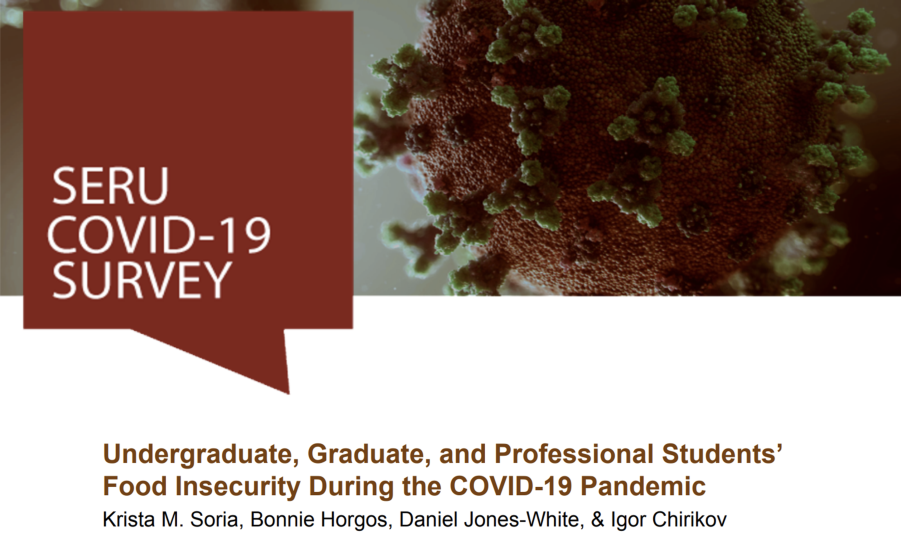Financial, resource, & psychological impacts of COVID-19 on U.S. College students
This study investigated how students' finances, access to needed resources, and psychological well-being were impacted by the COVID-19 pandemic.
SERU Consortium / September 2020

One in five undergraduates (22%) and graduate and professional students (19%) enrolled at large public research universities experienced food insecurity, according to the Student Experience in the Research University (SERU) Consortium survey of 31,687 undergraduate students at nine universities and 16,453 graduate and professional students from ten universities during the early months of the COVID-19 pandemic.
Results from the survey suggest that undergraduate, graduate, and professional students from underrepresented and marginalized backgrounds experienced significantly higher rates of food insecurity compared to their peers.
Specifically Black, Hispanic and Latinx, American Indian or Alaskan Native, and international students; low-income, poor, or working-class students; students who are caregivers to adults during the pandemic; first-generation students; and students who are transgender, nonbinary, bisexual, pansexual, or queer all experienced significantly higher rates of food insecurity during the pandemic compared to their peers.
As colleges and universities prepare for the upcoming fall 2020 semester, we encourage them to provide resources to alleviate students’ food insecurity, offer students greater access to nutritious and affordable food, and expand food security efforts given that the pandemic is likely to disrupt students’ traditional means of accessing food on campus. We encourage institutional leaders to provide targeted outreach efforts to the students who are most likely to experience food insecurity and consider novel ways of providing students with access to free or discounted meals, even if institutions are offering primarily online classes.